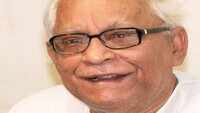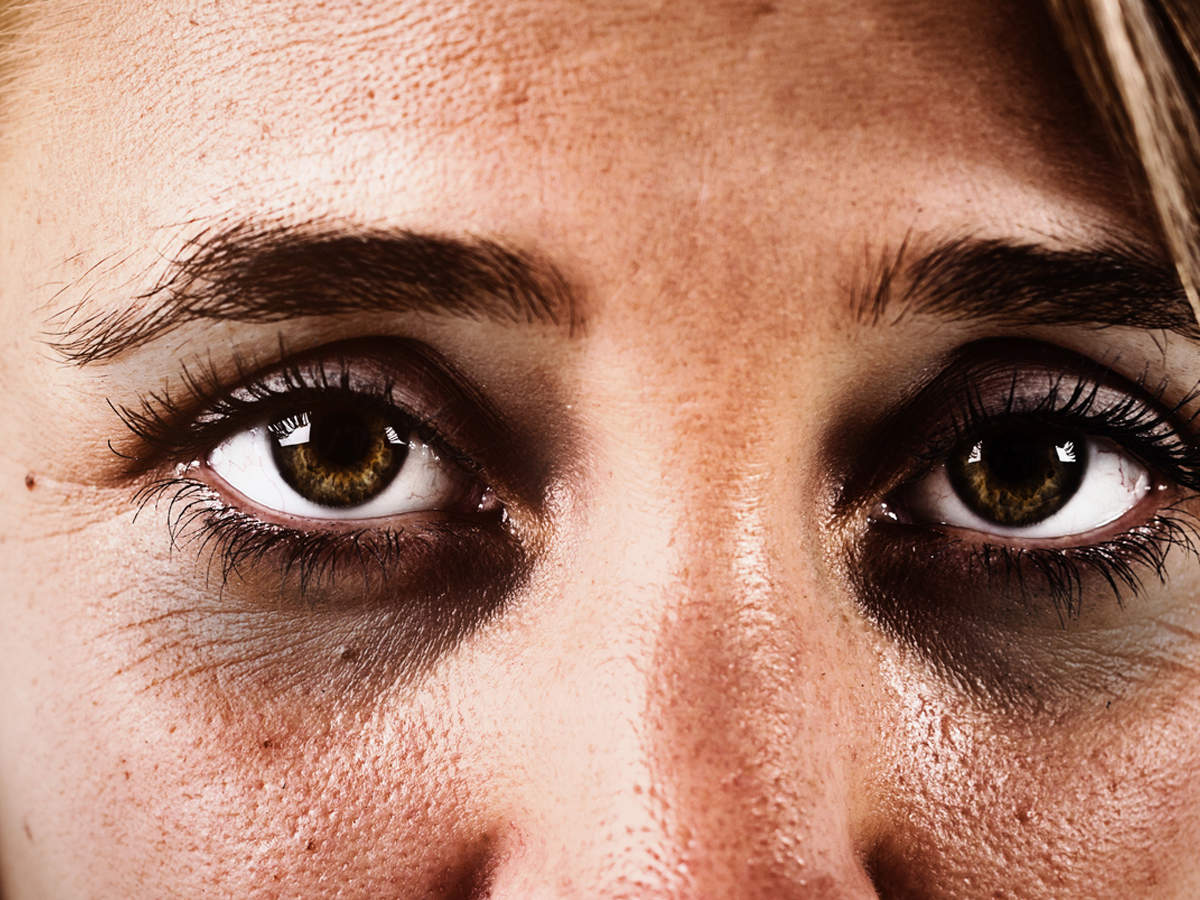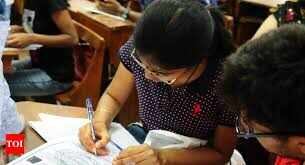
KOLKATA: Two of the oldest evacuees from the Bowbazar Metro accident site — both neighbours in life — died three hours apart on the same day (Tuesday) on the same floor of the same central Kolkata hospital.

Their kin, too, had a very similar experience before and after the deaths, struggling to prove the identity of the deceased at the hospital to get death certificates. The hurried evacuation after the August 31 underground accident had forced most of the 680-odd evacuees to move out without any identity proof, a problem that TOI had focused on earlier this week.
Both Anjali Mullick, an 88-year-old resident of 2/1B Shyakra Para Lane, and Ganesh Prasad Gupta, an 86-year-old who lived at 10, Shyakra Para Lane, had been accommodated at different hotels — along with their families — after the evacuation 10 days ago. Both complained of claustrophobia and yearned to return home before being admitted to hospital, their families said.
Anjali died around 10.40pm on Tuesday at GD Hospital and Diabetes Institute, near Wellington Square, two days after being admitted there. Ganesh died around three hours earlier — at 7.30pm — at the same hospital, where he was admitted on September 1.
But what united the two — and their families — was the “identity crisis” that dogged them even after death. None of the two senior citizens had any proof of identity when they moved out of their homes on September 1; so their families could not furnish any photo-identity card at the hospital.
Anjali’s kin had to file a “missing documents” general diary at the Muchipara police station on Tuesday and furnished its copy along with a residence-proof certificate they got from the local councillor.
The Guptas had to go into Ganesh’s grandson’s mobile phone photo gallery — from where they got a photograph of his Aadhaar card that was stored there — to “prove his identity”.
“We had to submit her photo-identity to the hospital before it issued a death note. So we ran to the police station and lodged a ‘missing documents’ general diary and then submitted its copy to the hospital,” Anjali’s daughter, Anita Basu, daughter. The Mullicks then had to go to the local councillor’s wife to get another proof of residence before they took Anjali’s body to the crematorium.
“We could not take any of her documents when she left home on September 1 and we were not allowed entry thereafter,” grandson Annoy Basu said, adding that Anjali died of cardiac arrest after complaining of breathlessness. Anjali had been almost bedridden at home with a dislocated hip joint.
The Guptas, too, moved out at 10 minutes’ notice in the early hours of September 1. They were taken to a Chandni Chowk hotel, where Ganesh started complaining of breathlessness soon after and had to be admitted to hospital the very same day. “He complained of chest pain on Sunday when he was shifted to ICU and he died on Tuesday,” his son, Kishore Kumar Gupta, said.
Both Anjali and Ganesh’s bodies were taken to their neighbourhood but could not be taken inside the homes where they spent most of their lives. “Her longing to get back remained fulfilled,” Anjali’s relative, Ruchira Dutta, said.
A senior official of the hospital said it had a corporate tie-up with ITD-CEM, the agency building the Bowbazar leg of the underground tunnel, and did not need any identity proof at the time of admission. “But, after they died, we needed some identity proof to issue death certificates. The patients’ names, addresses and photos had to be checked before we released a note,” hospital deputy general manager Ashraf Alam said.
A senior KMRC official condoled the deaths, adding they had ensured both senior citizens got the right treatment. “We did our best to ensure they got timely treatment. That remains a standing instruction for all evacuated residents staying in hotels,” the official said.

Their kin, too, had a very similar experience before and after the deaths, struggling to prove the identity of the deceased at the hospital to get death certificates. The hurried evacuation after the August 31 underground accident had forced most of the 680-odd evacuees to move out without any identity proof, a problem that TOI had focused on earlier this week.
Both Anjali Mullick, an 88-year-old resident of 2/1B Shyakra Para Lane, and Ganesh Prasad Gupta, an 86-year-old who lived at 10, Shyakra Para Lane, had been accommodated at different hotels — along with their families — after the evacuation 10 days ago. Both complained of claustrophobia and yearned to return home before being admitted to hospital, their families said.
Anjali died around 10.40pm on Tuesday at GD Hospital and Diabetes Institute, near Wellington Square, two days after being admitted there. Ganesh died around three hours earlier — at 7.30pm — at the same hospital, where he was admitted on September 1.
But what united the two — and their families — was the “identity crisis” that dogged them even after death. None of the two senior citizens had any proof of identity when they moved out of their homes on September 1; so their families could not furnish any photo-identity card at the hospital.
Anjali’s kin had to file a “missing documents” general diary at the Muchipara police station on Tuesday and furnished its copy along with a residence-proof certificate they got from the local councillor.
The Guptas had to go into Ganesh’s grandson’s mobile phone photo gallery — from where they got a photograph of his Aadhaar card that was stored there — to “prove his identity”.
“We had to submit her photo-identity to the hospital before it issued a death note. So we ran to the police station and lodged a ‘missing documents’ general diary and then submitted its copy to the hospital,” Anjali’s daughter, Anita Basu, daughter. The Mullicks then had to go to the local councillor’s wife to get another proof of residence before they took Anjali’s body to the crematorium.
“We could not take any of her documents when she left home on September 1 and we were not allowed entry thereafter,” grandson Annoy Basu said, adding that Anjali died of cardiac arrest after complaining of breathlessness. Anjali had been almost bedridden at home with a dislocated hip joint.
The Guptas, too, moved out at 10 minutes’ notice in the early hours of September 1. They were taken to a Chandni Chowk hotel, where Ganesh started complaining of breathlessness soon after and had to be admitted to hospital the very same day. “He complained of chest pain on Sunday when he was shifted to ICU and he died on Tuesday,” his son, Kishore Kumar Gupta, said.
Both Anjali and Ganesh’s bodies were taken to their neighbourhood but could not be taken inside the homes where they spent most of their lives. “Her longing to get back remained fulfilled,” Anjali’s relative, Ruchira Dutta, said.
A senior official of the hospital said it had a corporate tie-up with ITD-CEM, the agency building the Bowbazar leg of the underground tunnel, and did not need any identity proof at the time of admission. “But, after they died, we needed some identity proof to issue death certificates. The patients’ names, addresses and photos had to be checked before we released a note,” hospital deputy general manager Ashraf Alam said.
A senior KMRC official condoled the deaths, adding they had ensured both senior citizens got the right treatment. “We did our best to ensure they got timely treatment. That remains a standing instruction for all evacuated residents staying in hotels,” the official said.
Trending Topics
LATEST VIDEOS
City
 'Poker addict' Goldman Sachs VP was in deep debt: Cops
'Poker addict' Goldman Sachs VP was in deep debt: Cops 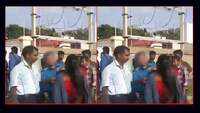 Tamil Nadu: 26-year-old man thrashed soundly by two wives for trying to marry again, video goes viral
Tamil Nadu: 26-year-old man thrashed soundly by two wives for trying to marry again, video goes viral 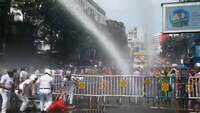 BJP workers beaten up as violence erupts during BJP youth morcha's rally in Kolkata
BJP workers beaten up as violence erupts during BJP youth morcha's rally in Kolkata  Greater Noida: Water crisis deepens in Supertech Eco Village2
Greater Noida: Water crisis deepens in Supertech Eco Village2
More from TOI
Navbharat Times
Featured Today in Travel
Quick Links
Lok Sabha Election Schedule 2019Lok Sabha Election NewsDelhi Capitals teamMI team 2019Rajasthan Royals 2019RCB team 2019Maharashtra Lok Sabha ConstituenciesBJP Candidate ListBJP List 2019 TamilnaduShiv Sena List 2019AP BJP List 2019Mamata BanerjeeBJP List 2019 MaharashtraPriyanka GandhiBJP List 2019 KarnatakaAMMK Candidate List 2019BJP List 2019 WBLok Sabha Elections in Tamil NaduBSP List 2019 UPNews in TamilLok Sabha Poll 2019Satta Matka 2018PM ModiMahagathbandhanNagpur BJP Candidate ListChandrababu NaiduTamil Nadu ElectionsUrmila MatondkarNews in TeluguMadras High CourtTejashwi YadavArvind KejriwalTejasvi SuryaPawan KalyanArvind KejriwalYogi AdityanathJaya PradaSatta King 2019Srinagar encounter
Get the app
